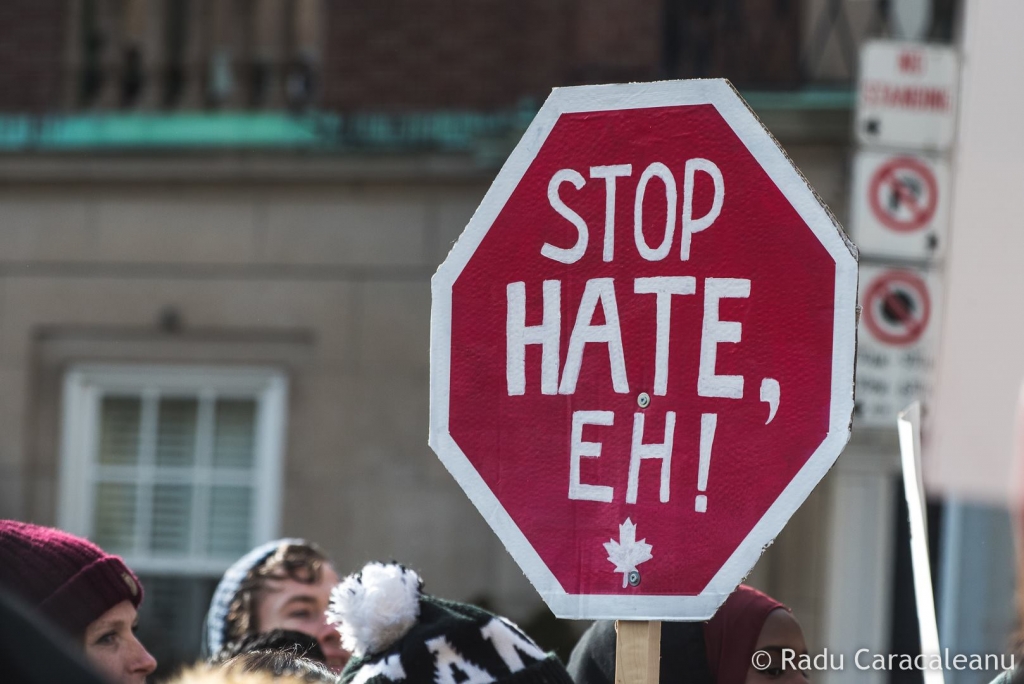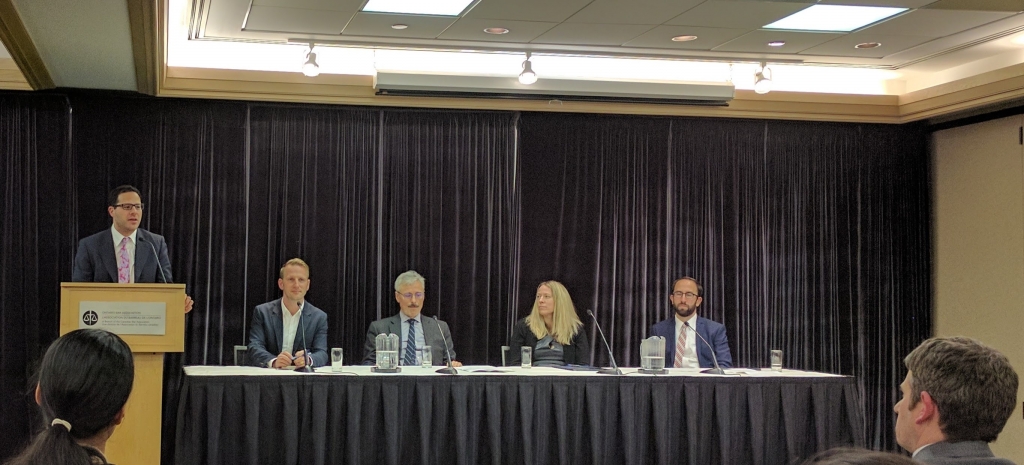The Canada-U.S. Safe Third Country Agreement: Canada During a Refugee Crisis
Hundreds of protesters shut down the U.S. Embassy in Toronto on Jan. 30, 2017.
By Jeremy Greenberg
Photography by Radu Caracaleanu
While global outcry over Donald Trump’s refugee ban continues unabated, pressure has been mounting on U.S. allies to take action. For Canada, that has meant the requisite calls to take in more refugees, as well as one proposal that has recently been gaining traction: suspension of the 2004 Canada-US Safe Third Country Agreement[1].




